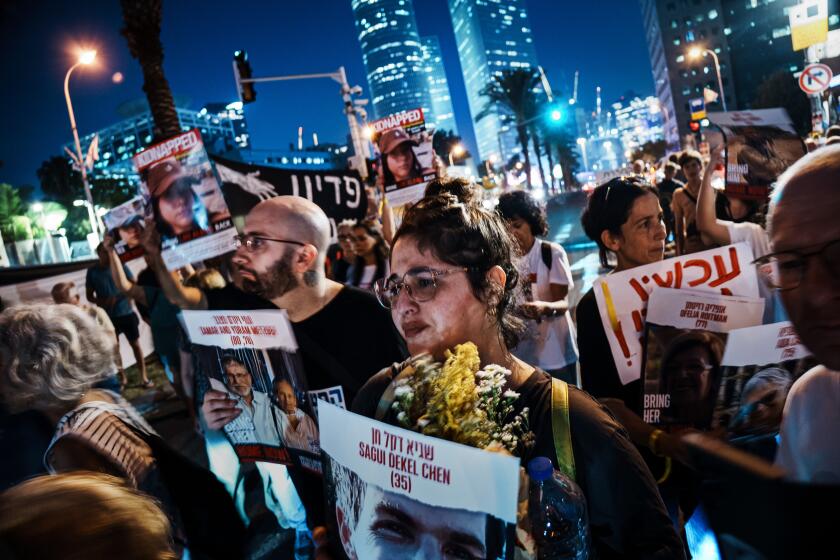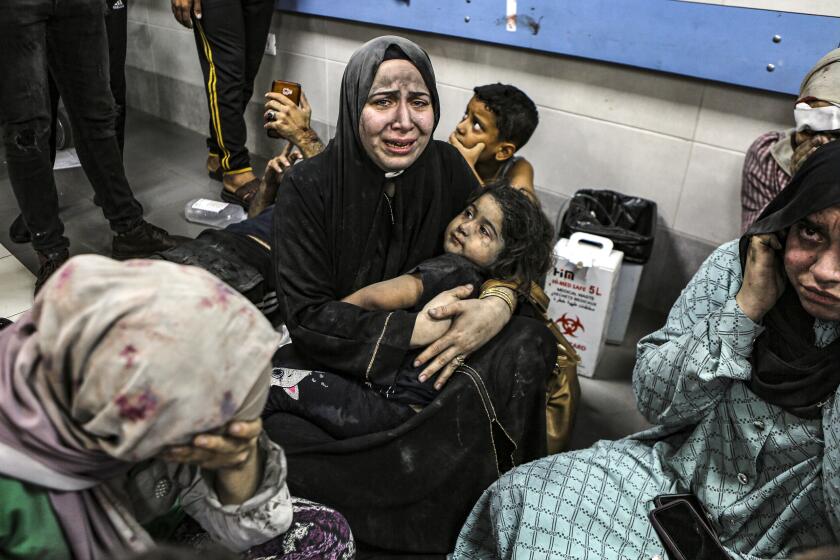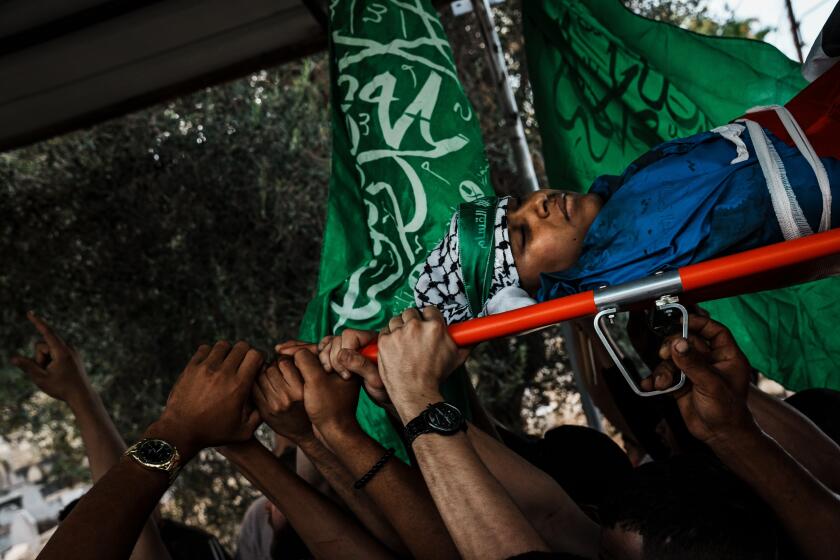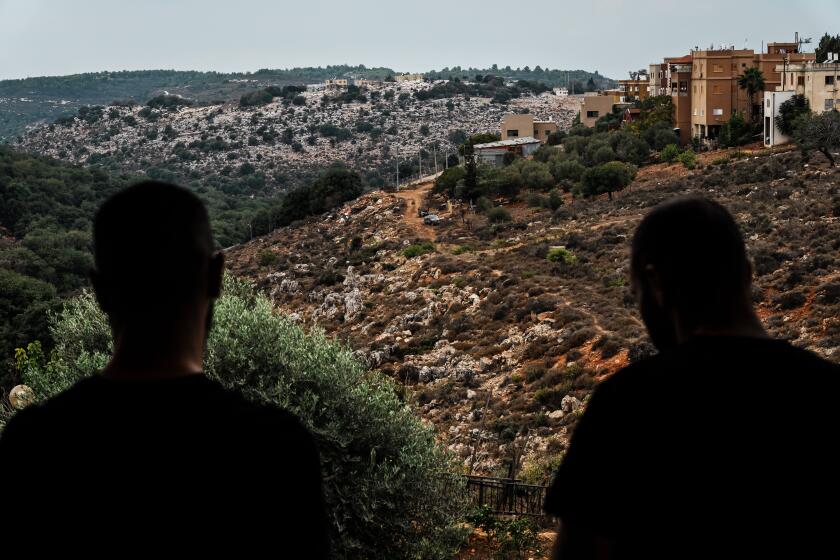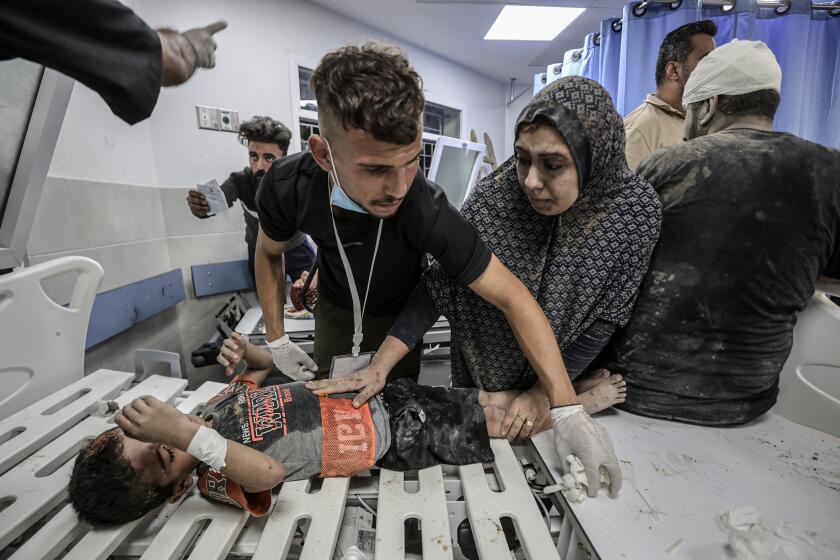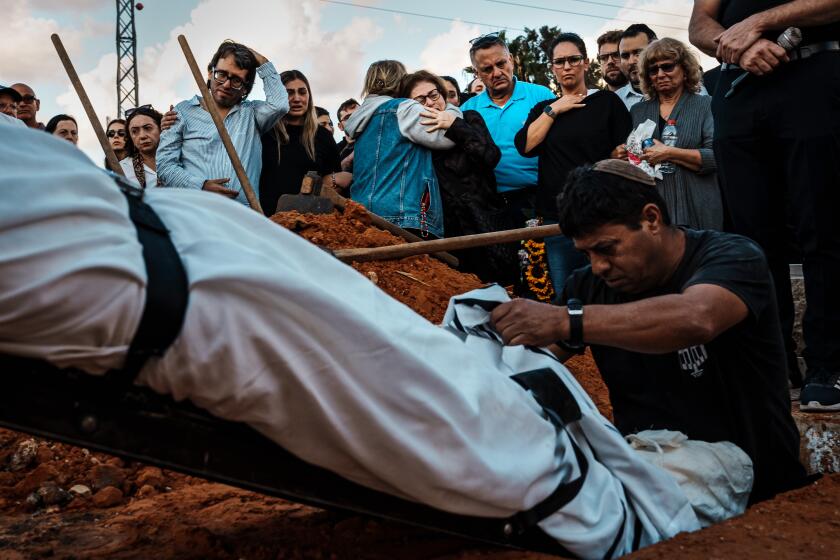U.S. fighter jets strike Iran-linked sites in Syria in retaliation for attacks on U.S. troops
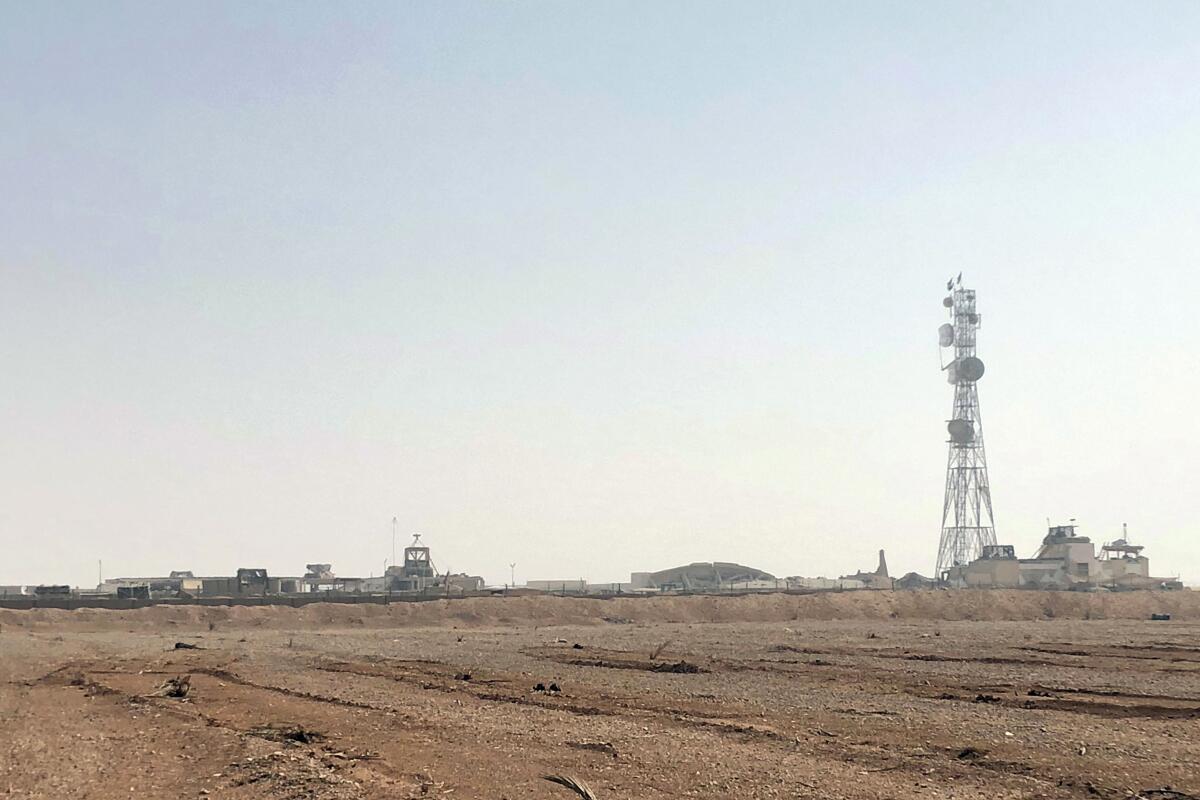
WASHINGTON — U.S. fighter jets launched airstrikes early Friday on two locations in eastern Syria linked to Iran’s Revolutionary Guard Corps, the Pentagon said, in retaliation for a slew of drone and missile attacks against U.S. bases and personnel in the region that began early last week.
The U.S. strikes reflect the Biden administration‘s determination to maintain a delicate balance. The U.S. wants to hit Iranian-backed groups suspected of targeting the U.S. as strongly as possible to deter future aggression, possibly fueled by Israel’s war against Hamas, while also working to avoid inflaming the region and provoking a wider conflict.
According to a senior U.S. military official, the precision strikes were carried out near Bukamal by two F-16 fighter jets, and they struck weapons and ammunition storage areas that were connected to Iran’s elite Revolutionary Guard. The official said there had been Iranian-aligned militia and Revolutionary Guard personnel on the base and no civilians, but the U.S. does not have any information yet on casualties or an assessment of damage. The official would not say how many munitions were launched by the F-16s.
A senior U.S. Defense official said the sites were chosen because the Revolutionary Guard stores the types of munitions there that were used in the strikes against U.S. bases and troops. The two officials briefed reporters after the strikes on condition of anonymity to provide details on the mission that had not yet been made public.
Israel-Hamas war: In a national vigil of sorts, Israelis hope for the return of more than 220 people seized by militants and believed held in Gaza.
Syrian opposition activists confirmed the U.S. strikes in Syria’s eastern province of Dair Alzour. Omar Abu Layla, a Europe-based activist who heads the Deir Ezzor 24 media outlet, said the main target was an area known as “the farms” outside the town of Mayadeen. He said it is an important transit site where weapons from Iran are stored before being shipped to Lebanon.
He said the second strike hit an area known as the “green belt” in the Bukamal area that borders Iraq. According to Abu Layla, some people were evacuated before the strikes because the retaliation was expected. The Britain-based Syrian Observatory for Human Rights, an opposition war monitor, said ambulances were seen rushing to the area, but it wasn’t clear if there were casualties.
Meanwhile Friday, an Iranian semiofficial news agency, Tasnim, said gunmen in east Syria fired 10 rockets on a base housing American troops in retaliation for the U.S. airstrikes. A U.S. official confirmed the rocket attack and said there were no reported casualties.
And, the Islamic Resistance in Iraq, an umbrella group for several Iran-backed groups, said fighters attacked the Asad Air Base in western Iraq with an attack drone. U.S. officials said it was shot down a few miles away and did not hit the base.
According to the Pentagon, as of Thursday there had been been at least 19 attacks on U.S. bases and personnel in Iraq and Syria since Oct. 17, including three Thursday. Air Force Brig. Gen. Pat Ryder said 21 U.S. personnel were injured in two of those assaults that used drones to target Asad Air Base in Iraq and the Tanf garrison in Syria.
In a statement, Defense Secretary Lloyd J. Austin III said the “precision self-defense strikes are a response to a series of ongoing and mostly unsuccessful attacks against U.S. personnel in Iraq and Syria by Iranian-backed militia groups that began on October 17.”
He said President Biden directed the narrowly tailored strikes “to make clear that the United States will not tolerate such attacks and will defend itself, its personnel, and its interests.” And he added that the operation was separate and distinct from Israel’s war against Hamas.
Israel and the Palestinian militant group Hamas appear set to go head-to-head on the ground in Gaza. What’s each side’s endgame?
The senior defense official told reporters that the F-16 airstrikes will have a significant impact on the ability of Iranian proxy groups to continue to attack U.S. forces. Asked what groups were targeted, the official said there are several that can have different names, but the U.S. holds Tehran responsible for funding, arming, equipping and directing the proxies.
The official said the airstrikes were not designed to expand the conflict in the region, but to compel Iran to direct the militia groups to cease the attacks on American bases and personnel.
Violence surges in the West Bank as Israel increases raids to root out militants. Palestinians say the military is using the war as an excuse to crack down.
The Biden administration has not accused Iran of having a direct role in the Oct. 7 Hamas attack on Israel and has said it appears so far that Tehran was not aware of it beforehand. But the U.S. has noted that Iran has long supported Hamas and has raised concerns that Iran and its proxies could turn the conflict into a wider war.
Austin said the U.S. does not seek a broader conflict, but if Iranian proxy groups continue, the U.S. won’t hesitate to take additional action to protect its forces.
According to the Pentagon, all the U.S. personnel hurt in the militant attacks received minor injuries and all returned to duty. In addition, a contractor suffered a cardiac arrest and died while seeking shelter from a possible drone attack.
On Israel’s border with Lebanon, residents are worried that groups like Hezbollah will join a war that eventually spirals into a regionwide conflict.
The retaliatory strikes came as no surprise. Officials at the Pentagon and the White House have made it clear for the last week that the U.S. would respond, with Ryder saying again Thursday that it would be “at the time and place of our choosing.”
The latest spate of strikes by the Iranian-linked groups came in the wake of a deadly explosion at a Gaza hospital, triggering protests in a number of Muslim nations. The Israeli military has relentlessly attacked Gaza in retaliation for the devastating Hamas rampage in southern Israel nearly three weeks ago, but Israel has denied responsibility for the Ahli Arab Hospital blast, and the U.S. has said its intelligence assessment found that Tel Aviv was not to blame.
After a hospital blast in Gaza, doctors struggling to save lives amid danger and dwindling supplies say they and the medical system are near collapse.
The U.S., including the Pentagon, has repeatedly said any strike response by the United States would be directly tied to the attacks on the troops, and not connected to the war between Israel and Hamas. Such retaliation and strikes against Iranian targets in Syria after similar attacks on U.S. bases are routine.
In March, for example, the U.S. struck sites in Syria used by groups affiliated with Iran’s Revolutionary Guard after an Iranian-linked attack killed a U.S. contractor and wounded seven other Americans in northeast Syria. American F-15 fighter jets flying out of Al Udeid Air Base in Qatar struck several locations around Dair Alzour.
Israel-Hamas war: In Israel, a quest to identify unrecognizable bodies. In Gaza, bodies are piled and some stored in ice cream trucks as power fails.
U.S. officials have routinely stressed that the American response is designed to be proportional and is aimed at deterring strikes against U.S. personnel who are focused on the fight against the Islamic State group.
U.S. officials have not publicly tied the recent string of attacks in Syria and Iraq to the violence in Gaza, but Iranian officials have openly criticized the U.S. for providing weapons to Israel that have been used to strike Gaza, resulting in civilian deaths.
The Pentagon, meanwhile, has beefed up air defenses in the region to protect U.S. forces. The U.S. has said it is sending several batteries of Patriot missile systems, a Terminal High Altitude Area Defense (THAAD) battery and additional fighter jets.
The THAAD is being sent from Ft. Bliss, Texas, and the Patriot batteries are from Ft. Liberty in North Carolina and Ft. Sill in Oklahoma. An Avenger air defense system from Ft. Liberty is also being sent.
Officials have said as many as two battalions of Patriots are being deployed. A battalion can include at least three Patriot batteries, which each have six to eight launchers.
Ryder said Thursday that about 900 troops have deployed or are in the process of going to the Middle East region, including those associated with the air defense systems.
More to Read
Sign up for Essential California
The most important California stories and recommendations in your inbox every morning.
You may occasionally receive promotional content from the Los Angeles Times.
